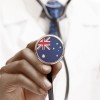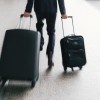
Even in Australia, Health Care Costs
Public health coverage is available to certain travelers visiting Australia; however, coverage is limited to necessary care. Even for those covered under this agreement, unexpected costs can make travel insurance a good investment.
Travelers to Australia do Not Receive Free Health Care
Free health care is a myth. Even in countries with heavily subsidized public health systems for citizens, few travelers can expect coverage. Australia does have reciprocal agreements with certain countries that allow residents to receive limited benefits under Medicare. Visitors from other nations are not covered at all. Either way, international travel insurance is a necessity if you want to avoid potentially huge out-of-pocket expenses.
Who is covered under the agreement?
Citizens of New Zealand, Sweden, Norway, Finland, the Netherlands, the Republic of Ireland, the United Kingdom, Belgium, Slovenia, Italy and Malta are entitled to limited benefits through Medicare while visiting Australia. This coverage is limited to essential care only, and the duration varies by country. In addition, those visiting on a student or retiree visa are not covered at all.
Should everyone buy supplemental insurance when traveling?
The short answer is yes. Even if you have health insurance in your home country that covers medical care abroad, there can still be substantial costs when receiving care. Due to the complexity and diversity of health care systems, billing and upfront payments vary greatly from place to place. Most medical insurance plans that cover costs incurred outside their coverage area require you to pay for the treatment out of pocket and file for reimbursement after the fact. Another common pitfall in relying on domestic insurance abroad is the difference in medical coding. How procedures and treatments are classified can affect your eligibility for reimbursement.
Is it worth the extra cost?
Travel insurance is an inexpensive addition to any trip. Since it is only issued for a limited duration, the potential liability for the company is much less. It also covers things like expatriation to your home country and non-medical mishaps that can ruin a trip. For less than the cost of a meal at a good restaurant, you can travel without worry.











